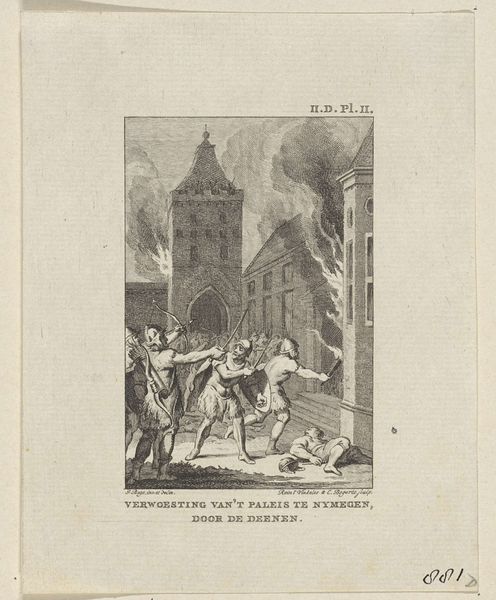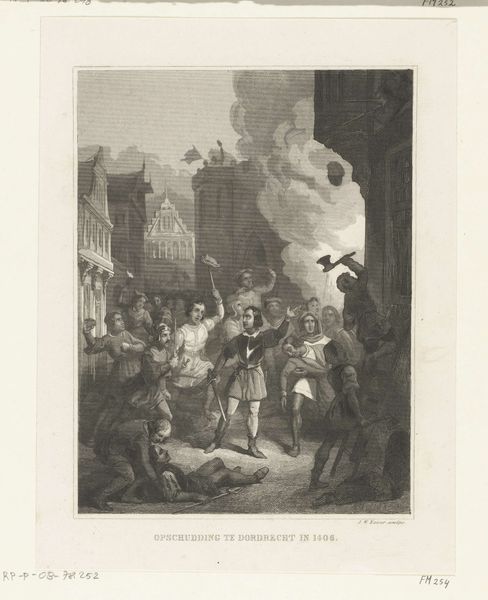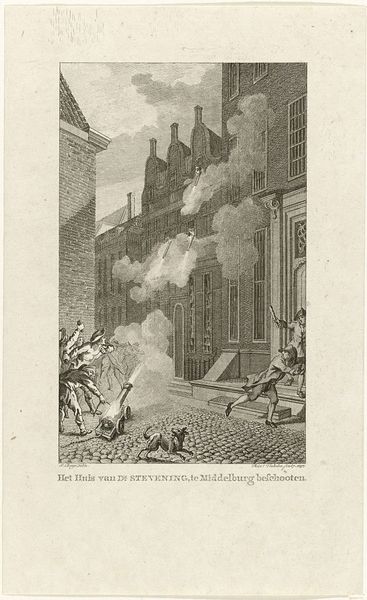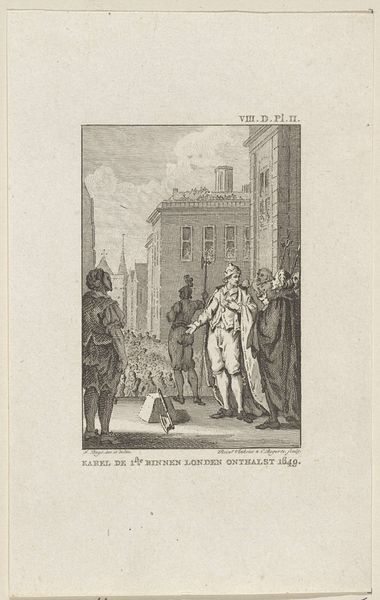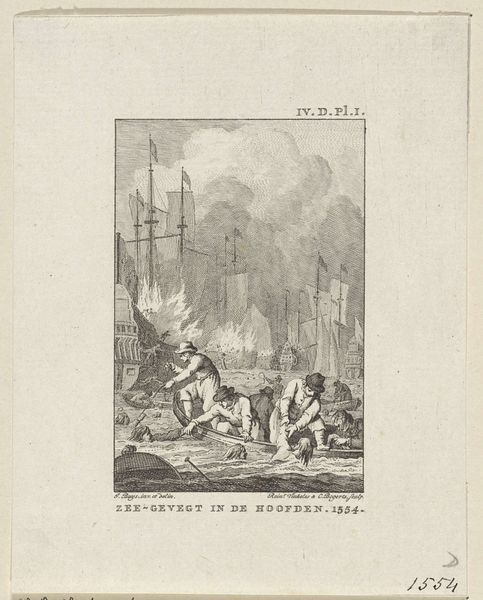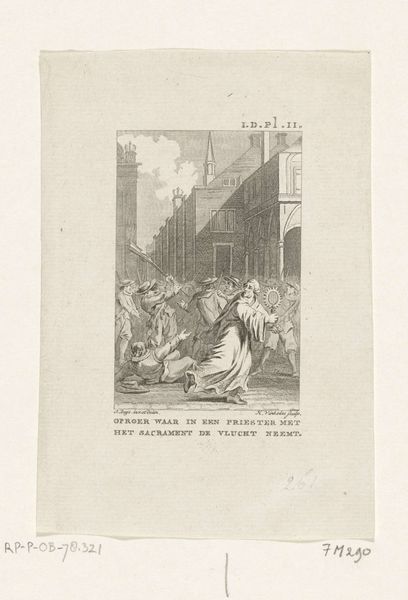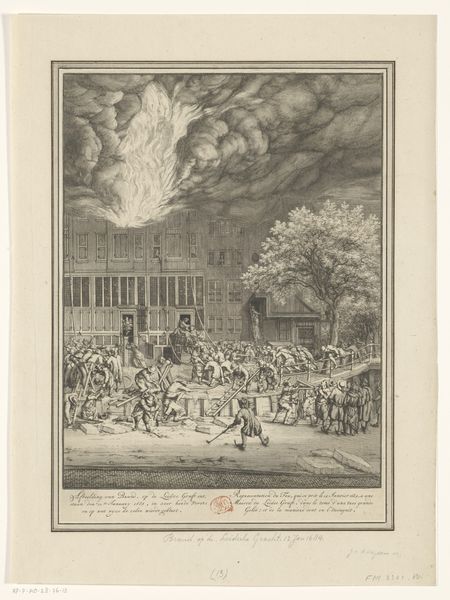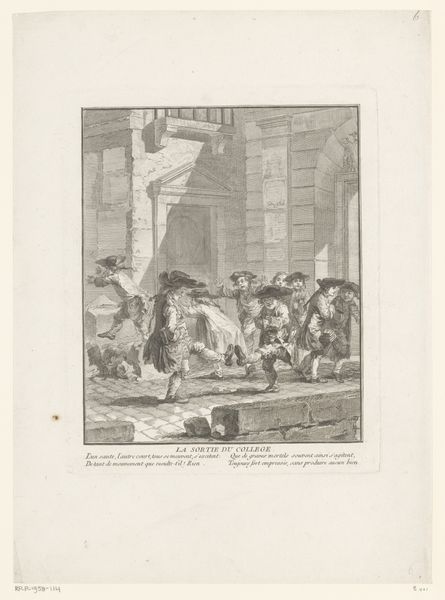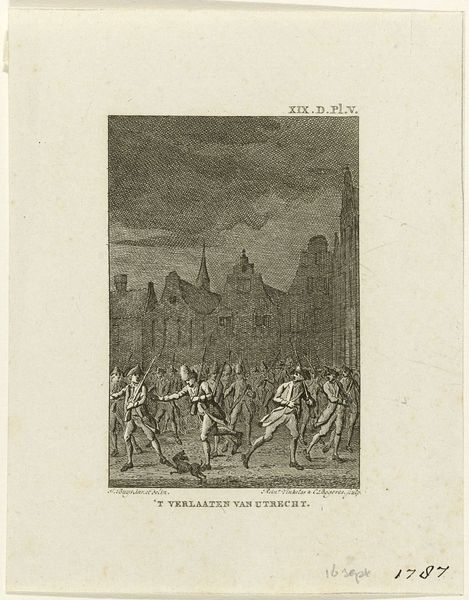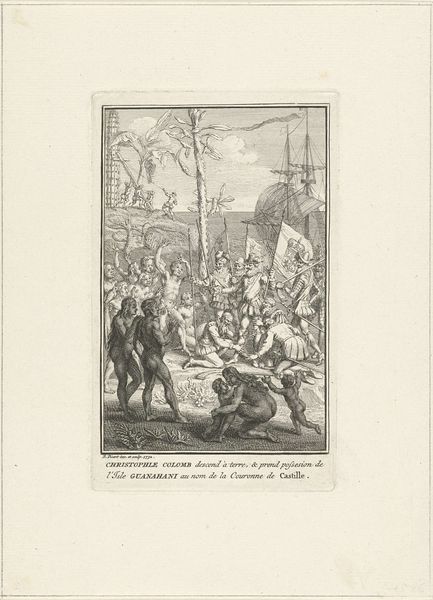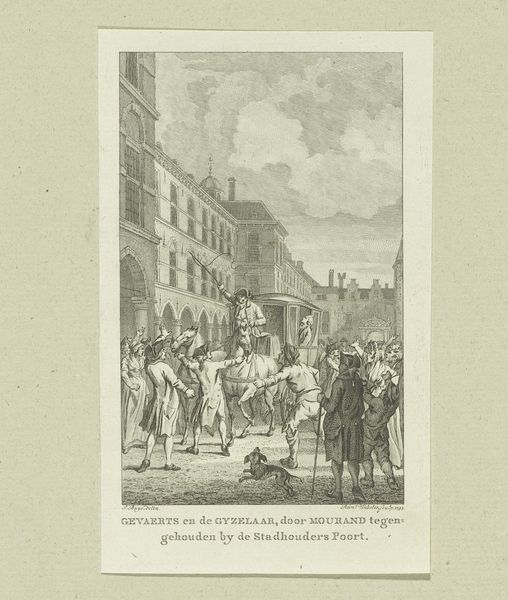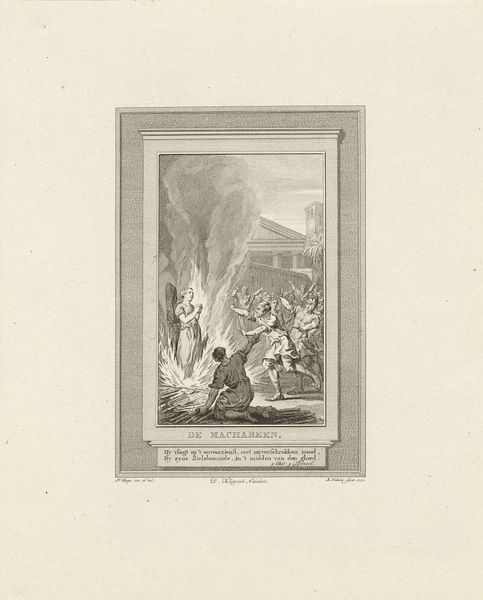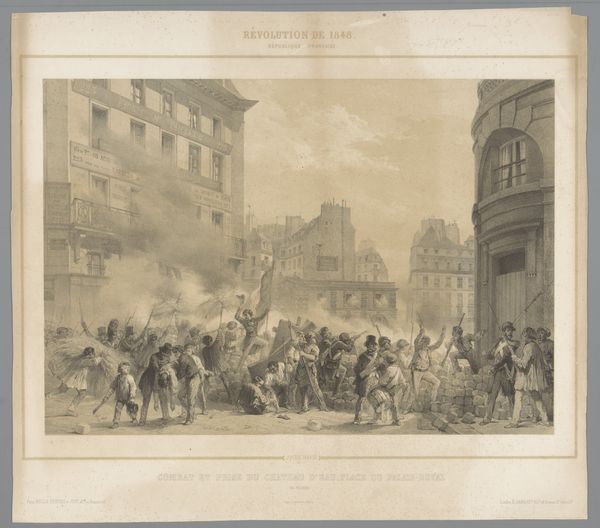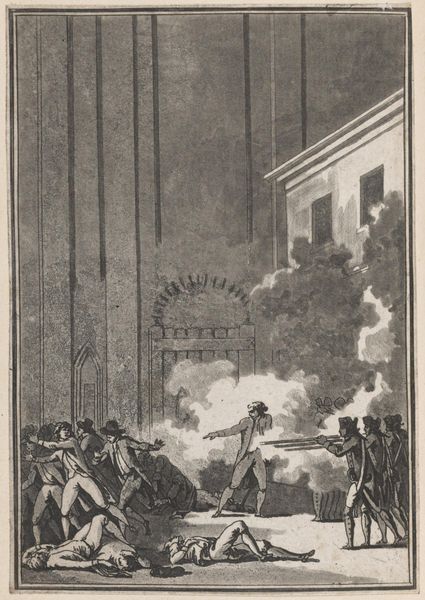
Beschieting van het huis van Lucas van Steveninck, 1787 1783 - 1795
0:00
0:00
reiniervinkeles
Rijksmuseum
print, engraving
#
neoclacissism
#
aged paper
#
toned paper
#
light pencil work
# print
#
pencil sketch
#
old engraving style
#
sketch book
#
personal sketchbook
#
sketchbook drawing
#
cityscape
#
pencil work
#
history-painting
#
sketchbook art
#
engraving
Dimensions: height 160 mm, width 100 mm
Copyright: Rijks Museum: Open Domain
Editor: Here we have Reinier Vinkeles's "Beschieting van het huis van Lucas van Steveninck, 1787", made between 1783 and 1795. It’s a print of an intense scene. There's a crowd in the street, and it looks like something just exploded. How do you interpret this work, particularly in light of the materials used to create it? Curator: It's an engraving, a print, fundamentally reproducible and made for wide circulation. Considering that, think about its function. It’s depicting the "Beschieting," or shelling, of a house during a riot. So it is crucial to understand it as an artifact born out of and participating in social unrest. Editor: That makes sense. The printmaking process itself becomes a tool for disseminating a certain viewpoint. What kind of social commentary do you think Vinkeles was trying to make through this medium? Curator: The print, inexpensive and easily reproduced, brought news and shaped public opinion. The choice to depict this event using engraving emphasizes its availability to a broader public. Look at the precision, the detail – what does that meticulous craft suggest about the intended audience and the message conveyed? Editor: It suggests maybe an attempt at objective reporting, despite the inherent biases present? Because an engraving could be mass-produced quickly and relatively cheaply? Curator: Exactly. The materiality speaks to access, to widespread consumption. So, considering that this event occurred in 1787, what does a widely distributed print of an act of civil unrest accomplish? How might it encourage discourse, or even further division within the community? Editor: I hadn't considered how the medium of print amplifies the socio-political context, turning the artwork into a powerful tool for communication and, potentially, incitement. It is very thought provoking. Curator: Precisely. Reflecting on this has reinforced for me how inseparable the message is from the means of its delivery. It transforms how we view this piece.
Comments
No comments
Be the first to comment and join the conversation on the ultimate creative platform.
